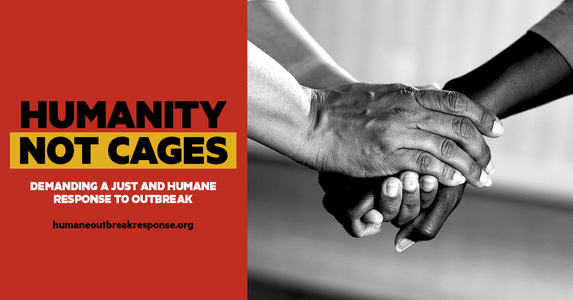100 signatures reached
To: U.S. Parole Commission, D.C. City Council, D.C. Mayor Muriel Bowser
Grant parole to incarcerated persons who have paid their debt of time

We have a window of opportunity in which we can begin to correct a great wrong. There are nearly 5,000 D.C. residents—more than 80% of them black—who are incarcerated in federal prisons across the country because the district doesn’t have its own prison. Nearly 900 of these individuals have been confined behind bars for more than 20 years, since their teens. A large body of evidence shows that people “age out” of violent tendencies and could be safely and productively released.
USPC: We urge you to use the opportunity offered by the D.C. Council via Act 23-286 (adopted to relieve the burden of COVID-19) to grant these individuals a second chance by moving swiftly to schedule parole hearings with the presumption they will be released. (Further detention is only warranted when a preponderance of evidence from recent years demonstrates that an individual has not experienced rehabilitation.)
D.C. City Council and Mayor: Call on the USPC to act in the original spirit of parole--a second chance following rehabilitation (NOT a retrial of the original crime). Meanwhile, do what is necessary, as expeditiously as possible, to bring back to D.C. the responsibility for parole decisions for D.C. residents.
Background: The D.C. law passed in April allows persons sentenced between June 22, 1994 (when the possibility of sentence reductions in return for good conduct was repealed), and Aug. 4, 2000 (when the district abolished parole), to retroactively benefit from good-conduct credit, up to 54 days per year—thus making them eligible for early parole. This is good news for what is believed to be hundreds of mostly black men serving indeterminate sentences. However, the U.S. Parole Commission, which assumed the responsibilities of the D.C. board after it was abolished, has a dismal track record. Although the USPC refuses to hold itself accountable by releasing statistics on its performance, the Justice Policy Institute wrote in a 2019 report that it had received “frequent complaints that the commission systematically denies parole based on the severity of an individual’s original offense, rather than on evidence of a person’s progress toward rehabilitation…Another common complaint is that the USPC seldom identifies a path forward for those persons who are denied parole. Little guidance is given about what steps can be taken to mitigate the factors that led to the denial.”
The Washington Lawyers’ Committee for Civil Rights and Urban Affairs concludes this: “The USPC has become a driver of mass incarceration. The decisions of the USPC have been far harsher than those of the former D.C. Board of Parole, with hundreds of district prisoners denied parole under punitive parole decision-making practices.”
Why is this important?
There are 800+ mostly black men from D.C. who are still incarcerated after 20+ years. They were charged when they were children/minors with violent crimes, but years of evidence show that people age out of this tendency. The likelihood of involvement in violence is at its highest around age 25, then declines dramatically. A case in point: A 2012 court case, Unger v. Maryland, which focused on improper jury instructions, resulted in the release of nearly 200 people (mostly Black, of course) who had served more than 30 years after being sentenced to life terms. Most of these individuals had been convicted of murder or rape. In the seven years since the decision, only 5 out of the 188 people released under the Unger ruling have returned to prison for violating parole or a new crime. (Only one returned due to a new incident that most would consider serious and it was robbery, not murder.)
Yet while academics and advocates know this, parole boards largely ignore it. The USPC is an egregious example. The USPC only nominally adheres to court rulings that govern the process. Too frequently, it leverages its broad discretionary powers to issue rulings based on its own criteria—refusing to parole a prisoner based on a limited review of the original criminal case.
These individuals who grew up behind bars have done their time. The vast majority have matured and changed. The USPC must stop re-trying them for a crime committed when they were still unstable, easily influenced teens and base its assessments on the presumption that they deserve a second chance.
Ultimately, the best way to assure a fair process for D.C. residents is to return responsibility for parole to a local board, which then is charged with staying true to a second-chance mindset.
How it will be delivered
The plan is to hold an online teach-in to mobilize supporters and stakeholders, then deliver signatures online with supporting media relations.

